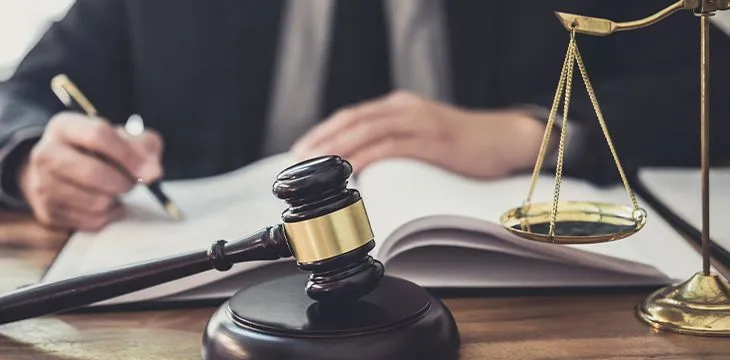|
Getting your Trinity Audio player ready...
|
Bittrex and Poloniex, the two most recently added defendants in the class action market manipulation suit originally against Bitfinex and Tether, are filing a motion for summary judgment in the case.
The defendants, who are accused of facilitating Bitfinex and Tether’s alleged market manipulation, have filed a notice to Judge Failla of the U.S. District Court of the Southern District of New York making it clear they intend to submit the motion, asking the Judge to rule in their favor on the basis that the claims made against them “rest on a demonstrably false factual premise.”
The suit began life in October of 2019, when Eric Young and Adam Kurtz accusing digital currency exchange Bitfinex and Tether of actively manipulating the price of BTC, among other claims. The manipulation scheme allegedly consisted of the defendants issuing USDT (Tether)—unbacked by a 1:1 U.S. dollar amount as was then claimed by Tether—and then using that currency to purchase BTC, artificially inflating its price.
The suit, which has since joined others filed in New York, points to a widely circulated University of Texas study, which claims that Bitfinex may have used its Tether currency to buy large amounts of BTC, generating artificial demand and inflating its price, which played a large role in the 2017 BTC price surge. It also came hot off the heels of the New York Attorney General announcing an investigation into Bitfinex’s network of companies and Tether for allegedly covering up the loss of almost a billion dollars’ worth of client funds, together with ongoing and mounting interest in the activities of both organizations.
While the original filing was against Bitfinex and Tether, Bittrex and Poloniex (the ‘exchange defendants’) were added in June of 2020 in an amended filing in New York. The suit accuses Bittrex and Poloniex of being essential facilitators in the manipulation scheme, serving as the exchange platforms used by Bitfinex to purchase BTC using Tether, and accuses them of being knowingly complicit in the manipulation scheme.
The suit arrives at this conclusion by pointing to two wallet addresses, one which is claimed to have been used by Bitfinex on the Poloniex platform, and another on the Bittrex platform, and alleging that those two defendants knew that the addresses belonged to Bitfinex and were being used to artificially inflate the price of Bitcoin.
According to the latest filings by the defendants, their imminent motion for summary judgment will attack the plaintiff’s claims that either Bittrex or Poloniex knew that the addresses belonged to Bitfinex at all.
The defendants claim that in submitting the motion, they will provide evidence as to the true owner of the addresses in question—a person who they say is not affiliated with Bitfinex other than as a customer. At that point, the exchange defendants assert, the burden of proof will rest entirely with the plaintiffs to prove that Bitfinex owned or controlled the accounts and that the exchange defendants knew of and assented to Bitfinex’s alleged market manipulation.
Bitfinex produced a blog post, apparently in response to the incoming motion for summary judgment, again complaining that the suit is just a scheme to claim money to which they have no entitlement. They say that that the tokens in the addresses used “neither belong to nor are controlled by Bitfinex, Bittrex, or Poloniex.” If true, it should be easy to identify the true owner of the accounts—but you might ask whether a scheme as sophisticated as the one alleged by the plaintiffs would be using accounts that are, on paper, controlled by those three companies. This certainly seems like a question best left for trial.
It will be worth keeping eyes peeled for the actual motion for summary judgment to see whether or not Bittrex and/or Poloniex can produce the evidence they claim to have regarding the true ownership of the questionable accounts supposedly being controlled by Bitfinex. Such evidence may exonerate Bittrex and Poloniex, but won’t do much for the Bitfinex network of companies facing an ever increasing number of legal actions and investigations.

 07-09-2025
07-09-2025 





